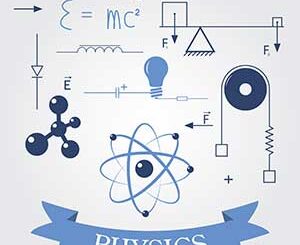Future of Education: Personalized Learning with AI
Education is experiencing a revolution. From rigid, one-size-fits-all classrooms to adaptive, personalized learning environments, technology is transforming how we teach and learn. At the heart of this transformation is Artificial Intelligence (AI) — a powerful tool that’s reshaping everything from lesson planning to student support.
In this article, we’ll explore how AI is redefining education, the concept of personalized learning, real-world applications, and what the future might look like.
What is Personalized Learning?
Personalized learning refers to tailoring education to meet the unique needs, strengths, interests, and pace of each student. Instead of a standardized curriculum delivered uniformly, students receive content and support that align with their individual learning styles.
It can involve:
- Customized lesson plans
- Adaptive learning paths
- Real-time feedback
- Goal-oriented progress tracking
This approach boosts engagement, improves retention, and supports deeper understanding.
How AI Enables Personalized Learning
Artificial Intelligence brings automation, data analysis, and adaptability to education. Here’s how it plays a central role in personalizing learning:
1. Adaptive Learning Platforms
AI-powered platforms like Khan Academy, Coursera, and Duolingo analyze how students interact with content. They identify areas where a learner struggles and adapt the material accordingly — offering simpler explanations, additional examples, or practice exercises.
2. Intelligent Tutoring Systems
AI can simulate one-on-one tutoring by understanding a student’s current level and adjusting its responses. Tools like Carnegie Learning and Content Technologies, Inc. provide real-time coaching based on a learner’s responses.
3. Data-Driven Insights
AI systems track performance, behavior, and preferences. Teachers can access dashboards that highlight which students need help, what topics are causing issues, and how best to intervene.
4. AI-Powered Assessments
Traditional exams can be stressful and limited. AI offers ongoing, formative assessments through interactive quizzes, simulations, and scenario-based testing — all tailored to each student’s progress.
5. Customized Content Creation
AI tools like ChatGPT, Quillionz, or ScribeSense can generate lesson plans, quizzes, reading material, and even flashcards based on the learning goals set by teachers or students.
Real-World Examples of AI in Personalized Education
✦ DreamBox Learning
An adaptive math program that personalizes instruction for K-8 students. It adjusts not just based on correct answers, but how the student solved the problem.
✦ Socratic by Google
A learning app that uses AI to analyze student questions (via voice or photo) and provide step-by-step solutions and explanations in multiple subjects.
✦ Content Technologies, Inc.
This AI system can create textbooks customized to each student’s learning level and subject preference.
✦ Century Tech
Used in schools across the UK, it combines neuroscience and AI to provide personalized learning experiences and reduce teacher workload.
Benefits of AI-Driven Personalized Learning
1. Improved Engagement
When students receive content aligned with their interests and at their level, they are more likely to stay engaged and motivated.
2. Self-Paced Learning
Not every student learns at the same speed. AI allows learners to progress at their own pace, taking more time on difficult topics and moving faster through easier ones.
3. Instant Feedback
Students don’t have to wait days to find out if they understood a topic. AI can correct mistakes, explain errors, and offer encouragement in real time.
4. Teacher Support
AI helps reduce the administrative burden on teachers, allowing them to focus on creativity, mentorship, and emotional support.
5. Equity in Education
With the right access, AI can help close learning gaps by offering high-quality education to underserved communities regardless of location or resources.
Challenges and Ethical Concerns
While AI holds great promise, it’s not without limitations:
❗ Data Privacy
Personalized learning relies on large amounts of student data. Ensuring data security and parental consent is critical.
❗ Algorithmic Bias
AI systems are only as good as the data they’re trained on. Biased data can result in unfair assessments or recommendations.
❗ Over-Reliance on Technology
Human interaction remains a key part of education. AI should support, not replace, the role of teachers and social learning.
❗ Access and Inequality
Not all students have access to the internet or devices needed to use AI-powered tools, which could widen the digital divide.
The Role of Teachers in an AI-Powered Future
Teachers will remain central to the learning experience. However, their roles may evolve from information delivery to:
- Facilitators of learning pathways
- Mentors providing emotional and social support
- Designers of learning environments using AI tools
- Collaborators with AI to personalize instruction and feedback
By partnering with AI, teachers can reach students more effectively and focus on the aspects of learning that technology can’t replicate—empathy, creativity, and human connection.
What the Future Looks Like
🔹 Hyper-Personalized Curriculums
AI may create entirely unique learning journeys for students, blending video, text, simulations, and assessments into a curriculum that changes in real time.
🔹 Voice-Based AI Tutors
Smart assistants like Siri or Alexa could evolve into fully conversational tutors available 24/7 to help with homework or concepts.
🔹 Global Classrooms
AI could connect students across the globe, offering multilingual, multicultural collaborative learning experiences.
🔹 AR/VR + AI Integration
Combining virtual reality with AI could immerse students in history lessons, science experiments, or virtual internships, with adaptive guidance throughout.
🔹 Life-Long Learning Paths
As people change careers more frequently, AI can support adult learners with personalized education modules, helping them upskill or reskill efficiently.
Final Thoughts
AI is not the future of education—it’s the present. As technology evolves, the dream of providing high-quality, individualized education to every learner becomes more attainable.
Personalized learning with AI doesn’t aim to replace teachers—it empowers them. It allows education to become more inclusive, engaging, and effective.
By embracing these tools thoughtfully, educators, students, and institutions can create a system where everyone has the opportunity to succeed, regardless of where they start.


